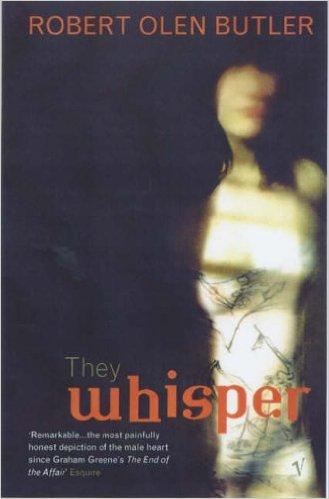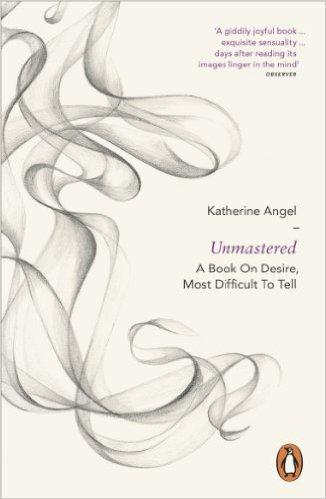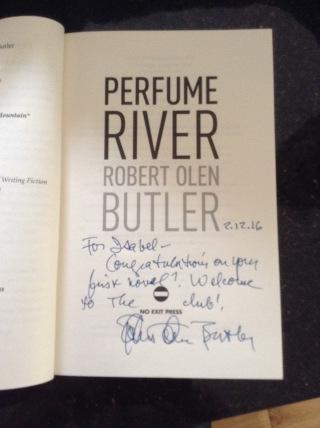 When I sit down to write a sex scene – and there is certainly no shortage of them in my debut novel Paris Mon Amour – I don’t think about it. I get the characters in a room and let things take their course. And to me that is a less daunting prospect than it would be to attempt a comprehensive write-up of one of the best literary events I have ever attended, yesterday’s Good Sex Night at Waterstones Gower Street. Instead, this is very much my personal take on the points that struck me most. I’ll be picking up on elements of my 2013 post Sex Scenes in Fiction, which continues to be one of the most viewed here on the Literary Sofa.
When I sit down to write a sex scene – and there is certainly no shortage of them in my debut novel Paris Mon Amour – I don’t think about it. I get the characters in a room and let things take their course. And to me that is a less daunting prospect than it would be to attempt a comprehensive write-up of one of the best literary events I have ever attended, yesterday’s Good Sex Night at Waterstones Gower Street. Instead, this is very much my personal take on the points that struck me most. I’ll be picking up on elements of my 2013 post Sex Scenes in Fiction, which continues to be one of the most viewed here on the Literary Sofa.
Firstly, I applaud Waterstones’ Elizabeth Morris and literary critic and interviewer Lucy Scholes for their initiative in organising an antidote to The Literary Review’s annual Bad Sex Award, bestowed earlier this week for the 24th time. I’m guessing that most of the audience at this packed event share the sceptical or critical view of it held by the three panellists, whose collective expertise, intellectual rigour and good humor made this such a stimulating and inspiring conversation.
I have seen Peter Hobbs before, at the Word Factory launch of the Sex & Death collection published by Faber, which he edited with Sarah Hall. Stories by both of them appear in an impressive line-up which also includes Ali Smith and Petina Gappah. Katherine Angel, author of Unmastered: A Book On Desire, Most Difficult To Tell, provided fascinating insights from a female and academic standpoint. And finally, I wasn’t the only one taken aback to find myself in the presence of a Pulitzer Prize winner, namely Robert Olen Butler, who has published six collections and a staggering 26 novels, of which the collection Intercourse (What goes through the mind of a person while having sex?) and novel They Whispered cropped up repeatedly.

Robert Olen Butler made some fascinating observations about the danger of lifting passages and removing all context, which has the potential to render anything ‘meaningless in art’. The question of what literary fiction is (and can be) arose throughout the discussion, never diverging far from the conviction that its essence lies in depth of characterisation and the power to genuinely engage the reader, rather than purely to entertain. This laying-bare of consciousness is practically a prerequisite for the fiction which touches me most; Robert expressed this beautifully, that ‘humans desire something at all times’ and that at its most fundamental level, plot, character, everything that makes fiction comes down to ‘yearning, challenged and thwarted’ and in particular, ‘yearning for an identity’. Our sexuality, along with issues of race, religion and culture, is central to the question we and our characters cannot escape: WHO AM I?

This leads neatly onto the problems of anatomical nomenclature in the English language, for all its riches (which make me grateful that given my setting, on the rare occasions it is needed, I can borrow the gender- and tonally neutral French term le sexe). Somehow in English we find ourselves having to choose between the clinical-and-not-very-sexy and the crude-or-infantile-verging-on-ludicrous. Peter feels that bad sex writing tends toward absurdity, and to focus excessively on the mechanics. Whilst as he says, sex is human behavior at its most animalistic, something is missing if that’s all there is. As a huge admirer of Alan Hollinghurst’s work, it was great to hear his ground-breakingly (at the time) explicit and yet multi-layered gay sex scenes praised.
And this, in turn, leads to gender and sexual orientation in narrative perspective, both author’s and characters’ (because the two can never be entirely disconnected). Katherine made a really interesting (and rather satisfying) point that for once the odds are stacked against the straight male author who is, rightly or wrongly – and it’s important to acknowledge that this is completely unfair in some cases – associated with the prevailing ‘male gaze’ which underpins many of the sexual stereotypes and prejudices which surround us, notably regarding the objectification of the female body for male gratification combined with the censure of real women’s sexuality. (I admit it – double standards are my soapbox topic.) Does the fact that ours has not been the dominant perspective for centuries make it easier for women and gay men to find something fresh to say about sex?
(By the way, don’t miss Saleem Haddad’s guest essay earlier this week on Shelving the ‘Gay Novel’.)

The Good Sex Night was a fabulous celebration of freedom, of openness, of the written word. Many thanks to all involved.
**
Given the subject of this piece, it would be remiss of me not to pay tribute to two authors: the extraordinary Anglo-French writer Michèle Roberts, whose Word Factory masterclasses on sex writing have been a huge inspiration. You can get a taste in her lecture On the Erotic Imagination at Goldsmith’s here. The other is Nicholas Hogg, whose novel Tokyo contains by far the most erotic, frankly very hot, scene I have read this year. We’re not all turned on by the same things, obviously, and I’m doing you a favour not going into detail as it’s a very good book all round.

